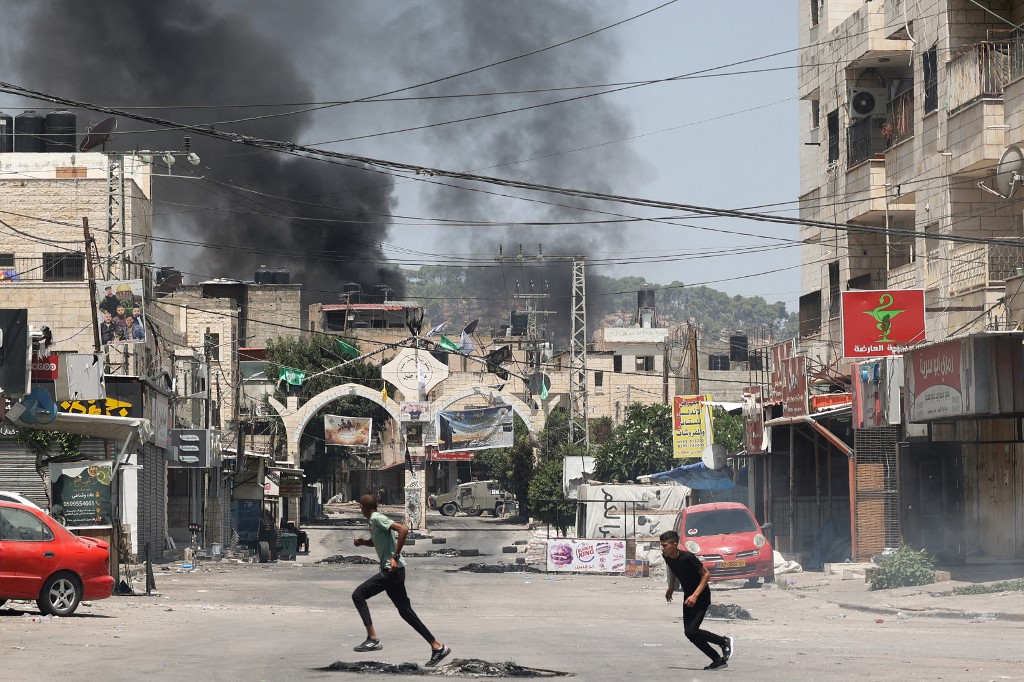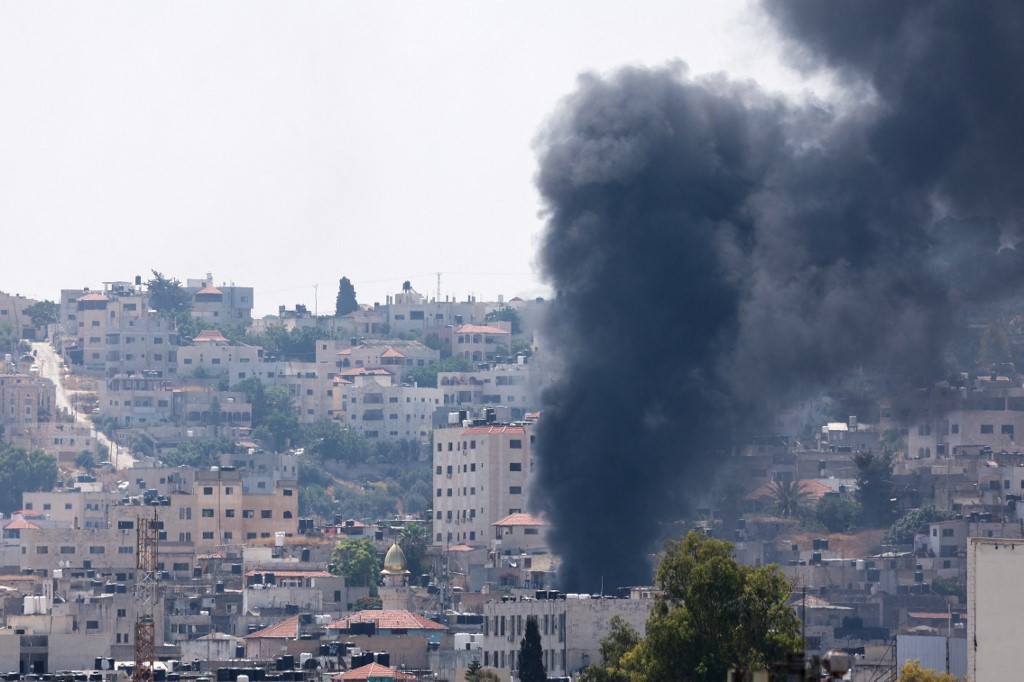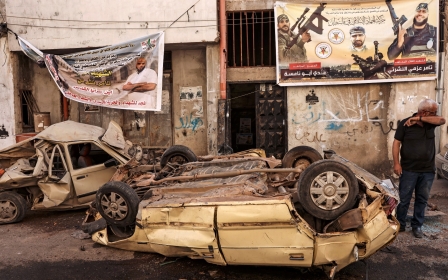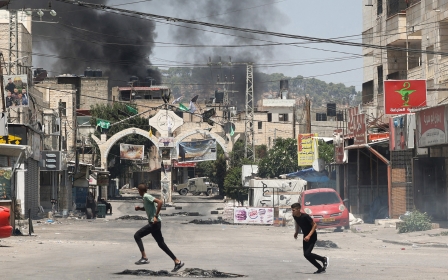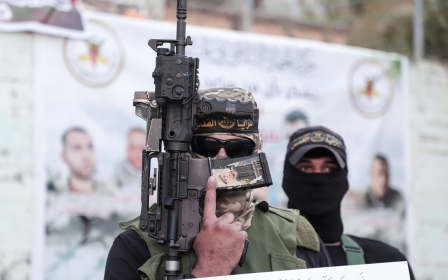What’s behind Israel’s latest offensive in Jenin and what does the future look like?
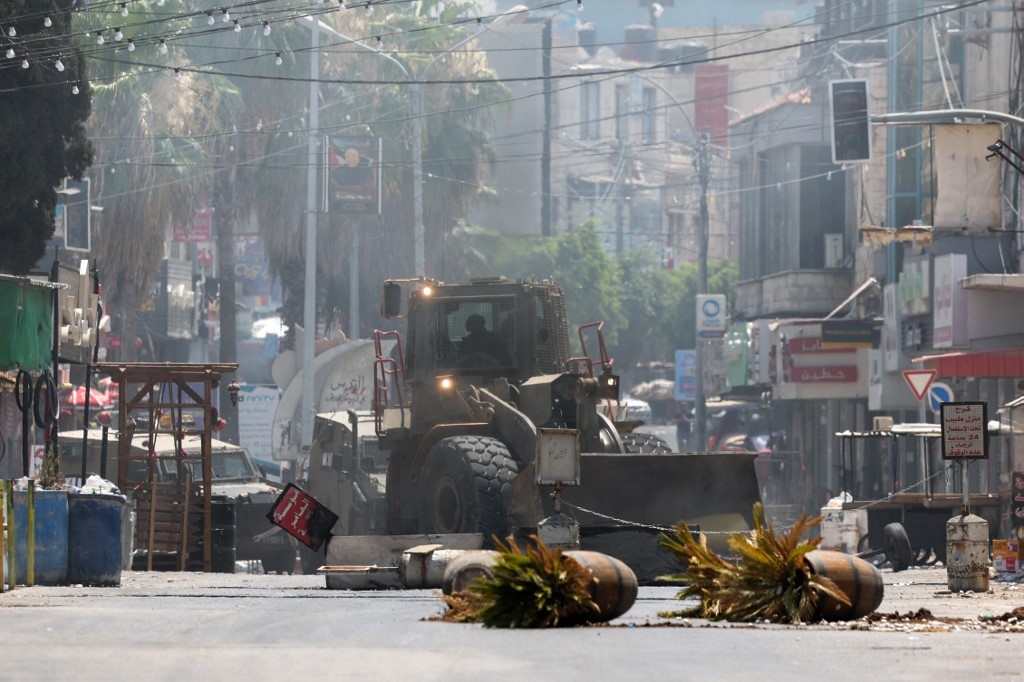
Large parts of the occupied West Bank city of Jenin were covered in rubble on Monday morning, following an Israeli offensive that has killed at least eight people.
Over 80 people have so far been wounded in the ongoing attack, with ambulances unable to reach casualties due to destroyed roads and buildings.
Officials in Jenin have described the attack as one of the worst in years, with one spokesperson at the Jenin Governmental Hospital comparing the level of destruction to Israel’s attacks on the city in 2002.
As part of it's Operation Defensive Shield in the West Bank, Israeli forces in April 2002 launched a 10-day attack on Jenin which resulted in the killing of over 52 Palestinians.
During the offensive, where over 150 tanks, fighter jets and armed forces descended onto civilian areas in Jenin, medical help and essential supplies were prevented from entering the city, while the Jenin refugee camp was shelled.
Stay informed with MEE's newsletters
Sign up to get the latest alerts, insights and analysis, starting with Turkey Unpacked
Peter Bouckaert, a senior researcher at Human Rights Watch who was involved in investigating the offensive, described the attack at the time as "extremely serious" and said that "some cases appear to be war crimes".
However, experts say there are some notable differences between today’s offensive and attacks in previous years.
What’s driving the offensive and why now?
Footage of the operation showed hundreds of armoured vehicles and soldiers taking part in the operation, which has also included raiding homes and arresting people.
Army bulldozers were seen razing homes and streets, leaving piles of rubble across Jenin.
Tariq Ziad, a journalist from Jenin, said the current offensive differs from the operation in 2002, during the Second Intifada.
"In 2002, Israel knew that invading would lead to the collapse of the Palestinian Authority, and at the time it wanted to eliminate the PA because it considered that Yasser Arafat was part of the resistance," he told Middle East Eye.
According to Ziad, Israel is no longer interested in the collapse of the Palestinian Authority.
Instead, he said, the motivation behind the offensive is more so to target the growing armed resistance in Jenin, such as the Jenin Brigades.
Sending a message to resistance groups
Sari Abu Nasr el-Din, a writer and political analyst, said Israeli forces caused widespread levels of destruction, hitting the camp's infrastructure, electricity, water and phone lines.
Nasr el-Din, who lives in a neighbourhood close to Jenin, said Monday's offensive targeted homes that were used to house members of the Jenin Brigades.
'The occupation wants to show that this destruction is the result of anyone who supports the resistance'
- Sari Abu Nasr el-Din, political analyst
“[Israeli forces] struck Jenin refugee camp from all areas, using some of the tactics used in 2002. There have been dozens of injuries.”
Nasr el-Din said one of the main reasons behind the offensive is targeting resistance groups that Israel accuses of carrying out several attacks.
“Another reason is to send a message to people about housing members of the Brigade and solidarity with them. The occupation wants to show that this destruction is the result of anyone who supports the resistance,” he said.
“There are also political reasons behind the offensive, some of it has been made public, some of it you have to read between the lines.”
Other cities to rise up
Palestinian armed resistance groups have previously called for direct confrontations against Israeli occupation forces, and have garnered widespread support across the West Bank and Gaza.
The Palestinian Islamic Jihad group said in a statement that “all options are open to strike the enemy in response to the aggression in Jenin.”
Awni al-Mashni, an activist and member of the consulting council for the Fatah movement, said the offensive in Jenin might eventually cause other Palestinian cities to rise up and resist the occupation.
“What is happening is expected, this is how the relationship is with the occupation forces - civilians reject occupation and the occupation imposes themselves by force,” he said.
Mashni believes that the offensive could signal the beginning of a different reality on the ground.
“Israel’s offensive on Jenin will not end in it becoming a peaceful city under the Israelis, this is a delusion,” Mashni told Middle East Eye.
“What is more likely to happen is for other Palestinian cities to end up like Jenin.
“The same thing will happen in the West Bank, and also take place in Qalqilya, Tulkarem, Nablus, Ramlallah, Hebron and Bethlehem, and the people will continue to resist.”
Mashni said that following today’s offensive, the resistance in cities like Jenin will only get stronger.
“They will have a bigger role now, they will have stronger morale,” he added.
Reaction from Gaza and Lebanon
Experts say the coming days are critical, and will determine how severe - if at all - the reaction will be from both inside Palestine as well as from Lebanon.
According to Ziad, today’s offensive is different from 2002 due to the potential of a reaction from Gaza and Lebanon.
'The amount of people killed will determine how this operation will go and the response to it'
- Tariq Ziad, Journalist
“The amount of people killed will determine how this operation will go and the response to it,” he said.
“If there is a lot of bloodshed, Gaza will intervene.”
“In 2002, there were 73 martyrs, so now I don’t think that Gaza is going to wait for the numbers to reach 73 again.”
So far, there has not been a response from Gaza or Lebanon, but their reaction in previous years is making Israel think twice before carrying out long and large-scale attacks.
“This government wants to wipe Palestinians from the face of the earth, but the resistance in Gaza will make them think hard before taking any actions that would trigger a response,” said Ziad.
Nasr el-Din believes that today’s offensive could trigger a reaction from Palestinians, both organised and sporadically by individuals, in the West Bank and aimed towards settlers.
“What happens next depends on the actions of the occupation forces,” he says.
What does the future look like?
The military attack on Jenin has continued for over 12 hours, with no signs of it ending any time soon.
Eyewitnesses and local journalists have described the situation on the ground as one of the worst they have seen since the 2002 invasion.
With no signs of the tensions waning, some predict that the events could potentially continue on, and even spill out into other cities.
According to Almashni, the resistance in Jenin will expand to other cities and the Palestinian Authority’s power in the West Bank will gradually weaken.
“Eventually the occupation will come to terms with the fact that their tactics can not continue,” he says.
“In my opinion, this is the start of a changed behaviour from Palestinian people, this is a normal reaction from them and the occupation will not last long in the West Bank.”
This article is available in French on Middle East Eye French edition.
Middle East Eye delivers independent and unrivalled coverage and analysis of the Middle East, North Africa and beyond. To learn more about republishing this content and the associated fees, please fill out this form. More about MEE can be found here.


